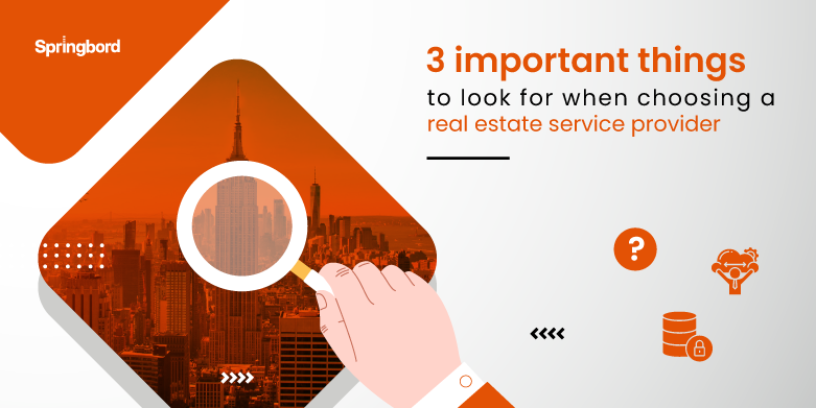 Read time 2 min
Read time 2 minMany real estate companies are struggling to tap into newer opportunities and retain and gain market share in the face of rapidly changing industry landscape, new entrants, and intensifying competition. It is mostly because their in-house resources are swamped with performing routine administrative and property management tasks to meet the growing reporting and compliance requirements and to ensure smooth operations.
Unreasonable workload is not only causing employee burnout but also making it difficult for real estate companies to concentrate on sales and customer acquisition. Realizing this, many real estate companies are now choosing to outsource various processes including lease administration, property management, property accounting, and real estate marketing to professional service providers.
Outsourcing helps companies improve productivity and process efficiency, while allowing in-house staff to focus on driving business growth. Outsourcing delivers both quantifiable and value-added benefits, provided you choose to partner with the right service provider. While you may have your own checklist and parameters to select a vendor, here’s a quick look at top three aspects that should essentially be a part of your list of criteria.
1. Domain expertise should be an important criterion
While scouting for prospective outsourcing partners, irrespective of the scope of work, it is imperative that you assess your shortlisted vendors across following factors.
- Domain and industry knowledge
- Specialized skill sets and technical expertise
- In-depth understanding of, experience in, and access to the latest technology used within the industry
- Problem-solving and project management capabilities
An outsourcing engagement can be successful only when the service provider brings all of these experiences and expertise to the table. Limited knowledge or expertise of a vendor can derail the entire project, making outsourcing a counterproductive strategy for the business.
2. Data security and protection
Data privacy and security has always been a biggest concern when it comes to outsourcing. Especially in the digital world, real estate businesses need to be cautious and careful when outsourcing a project. To ensure you are partnering with the right vendor, you need to evaluate the outsourcing partner’s data protection policies and practices.
Apart from a nondisclosure agreement, which is standard practice when you enter into such contracts, it is critical to assess how well equipped the service provider is in handling, storing, and managing sensitive and critical business information. This should be your make or break criterion. Ideally, you should look for partners who employ advanced tools, stringent practices (such as Six Sigma) and have certification that guarantee protection, privacy, and integrity of all your sensitive data.
3. Flexibility and scalability
In a dynamic and volatile market, it is only reasonable that if you are paying for added capabilities, they should be flexible enough to adapt to or respond to changing and urgent requirements. Plus, the outsourcing partner should be flexible enough to meet your scalability demands, whether you wish to ramp up or down when the need arises.
It plays a key role especially when you choose an off-shore partner who should be able to provide complete and custom support during urgent and high demand phases. They should be well equipped with trained resources and technology tools to be able to ensure they meet their client’s current as well as future demands.
Springbord has been a reliable partner for years for various leading global real estate companies, helping them streamline real estate back-office and data management processes and drive better business outcomes. Connect with us today to know more about our services and engagement models.








